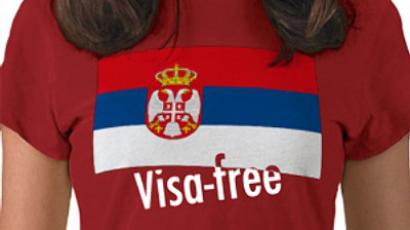The kitchen that warmed up the Cold War
It's been 50 years since the Kitchen Debate, the famous impromptu Cold War talks between Soviet Premier Nikita Khrushchev and US Vice President Richard Nixon in which each argued the merits of their respective policies.
Diplomats say the exchange laid the foundation for future cooperation, and many believe it is still important today as the US and Russia push the reset button.
The meeting in 1959 became the first high-level talks between US and Soviet officials since the Geneva summit in 1955. What brought the Soviet leader and the American vice president together was a US trade fair in Moscow.
Among the exhibits were books, art pieces, electric devices and other goods that were meant to represent the fruits of the capitalist market and to impress the Soviet consumers who at the time had few products to choose from.
Some of the household items were put on display in a model American suburban house, in the kitchen of which the US vice president and Soviet premier held their famous talks. That’s why the meeting became known as the Kitchen Debate.
“I think it was a propaganda stunt for both of the men, to be honest with you,” said Yury Lepanov, Khrushchev’s personal translator. “Nixon, for example, used the debates to boost his public appeal and secure the Republican presidency nomination.”
It was a successful trick, as Nixon went on to become the American president less than a decade later. Khrushchev, for his part, gave the world the oft-quoted phrase “we'll show you what is what.”
However, for many, it wasn't the debates they remembered the most.
“I was one of the guides,” said Tatiana Sochurek, a former exhibit guide. “I didn’t carry so much away from the Kitchen Debate because I worked in the house. What was significant to me were the crowds that came after Nixon and Khrushchev had left.”
The press was somewhat skeptical of the debate at the time, but diplomats today say it was one of the first steps toward cooperation between Moscow and Washington.
“The exhibition had an enormously important impact on relations between Russians and Americans over time, the 19 exhibitions that they gave rise to over the following three decades,” said William Burns, a former ambassador to Russia.
“And I think it’s always important to remember today – as we seek to make a new beginning in our relationship, a fresh start – about the importance of connections not just between governments but also between societies,” he added.
With the reset mood favored in both Russia and the US, it may well be that 50 years after the Kitchen Debates, Russian and American leaders will put competition aside and focus on the things that really do matter.














